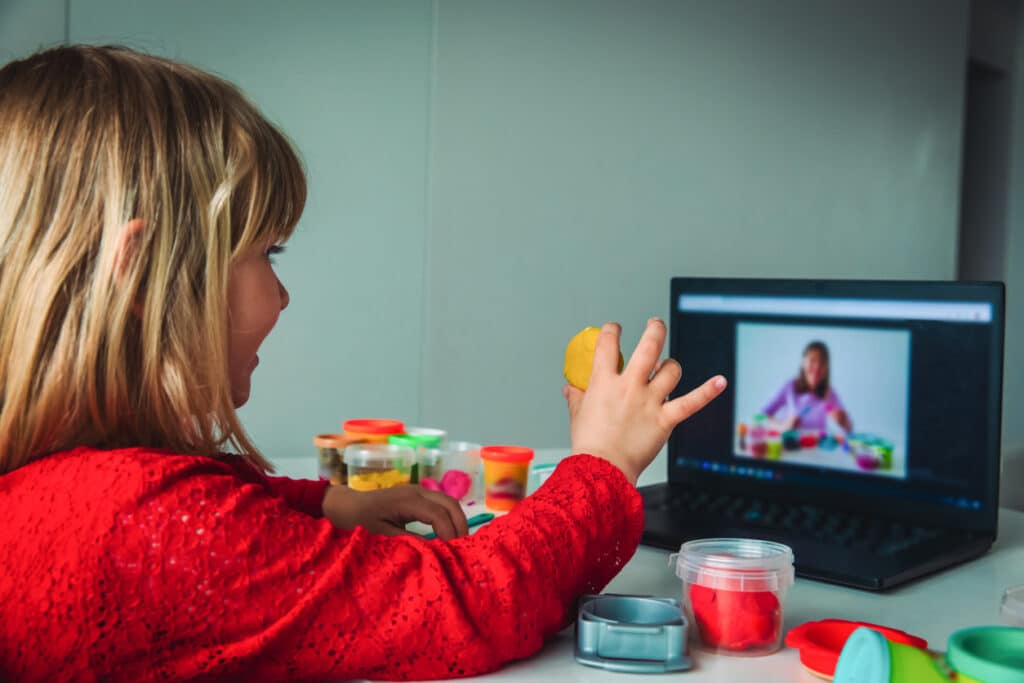When the people responsible for a student’s success aren’t working together, it creates chaos.
Teachers struggle to balance behavior and academic needs, families feel disconnected from the school, and students slip through the cracks. It’s not just frustrating—it’s damaging.
Schools are already stretched thin, and without a unified effort, everyone becomes overwhelmed. However, when the right people work together, the difference is clear: students get the help they need at the right time, teachers feel more empowered, and families are more engaged.
The result? A stronger, more effective school community where every student can thrive.
For Student Services and Special Education Directors, the challenge isn’t just recognizing these gaps; it’s implementing a system where all stakeholders collaborate effectively to support students with behavioral and academic needs.
By coordinating resources, integrating student services with special education, and reinforcing classroom support, schools can create a system that provides differentiated, proactive interventions rather than reactive solutions.
Keep reading for specific action items that define each stakeholder’s role in this approach, and consider sharing this guide with your team to foster collaboration and drive meaningful change.
Building a Collaborative System of Support
Table of Contents

School Leaders: Leading with Purpose
Administrators play a key role in structuring a wraparound support system that aligns resources, staff, and strategies to provide robust student care.
They set the tone of shared responsibility by promoting open communication, providing professional development for staff, and creating policies that make coordination easier.
Regular meetings and training keep everyone aligned, and systems are put in place to reduce staff burnout while giving students the tools they need to succeed.
Take Action:
- Develop school-wide policies that ensure that school teams, including teachers, special education professionals, and support staff, work together effectively.
- Implement regular cross-disciplinary meetings to align goals between student services, special education teams, and general educators.
- Ensure staff have access to data-driven decision-making tools that help monitor student progress.
- Promote professional development focused on intervention strategies and team-based approaches to student success.
General Education Teachers: The Frontline of Student Success
Teachers are often the first to notice when students struggle. Ensuring they have direct access to student services and various resources is critical to early intervention. The more teachers work together with special education teams, the better they can serve every student in the classroom.
“Special education teachers are a wealth of knowledge when it comes to classroom accommodations and differentiation.” – Brandy Samuell, eLuma’s Director of K-12 Mental Health and Related Services and veteran educator
When teachers have access to evidence-based strategies, joint planning time with specialists, and strong support from school leadership, they can provide more effective accommodations and interventions.
Take Action:
- Work closely with student services providers to recognize early warning signs of behavioral and academic struggles.
- Utilize joint planning time with multidisciplinary teams to integrate accommodations and interventions effectively.
- Use shared data and intervention plans to apply targeted strategies within the classroom.
- Implement evidence-based strategies that align with school-wide support initiatives.

Special Education Teams: Providing Tailored Support
Special education professionals are vital in ensuring students receive personalized interventions. When they are integrated into a broader school-wide system, interventions become more seamless and effective. By collaborating with general education teachers, special education teams can adjust accommodations and provide more specialized instruction.
“Special education is a service, not a place—it’s the individualized support that drives student success and growth.”
Regular communication between the two groups ensures that everyone is on the same page when it comes to student progress and IEP goals. When teachers work in tandem, students with disabilities receive the appropriate level of support, and their progress can be effectively monitored.
Take Action:
- Align IEP goals with input and collaboration from general education staff to ensure seamless classroom support.
- Maintain frequent check-ins with related services providers to adjust behavioral and functional interventions as needed.
- Utilize progress monitoring tools to track student outcomes.
Student Services Providers: Addressing Issues Early and Effectively
Student services professionals, such as counselors, therapists, social workers, and behavioral specialists, are critical in preventing issues before they escalate. When they work closely with teachers and special education teams, they can provide timely interventions that make a big difference.
By sharing data and collaborating, student services staff can support teachers with the tools to address behavior and mental health challenges before they disrupt learning.
Take Action:
- Collaborate with teachers to implement preventative strategies that reduce classroom disruptions.
- Share student data and intervention insights to support team-based decision-making.
- Advocate for policies that prioritize early intervention and a wraparound approach to student support.
Families: Strengthening the Bridge Between School and Home
Caregiver engagement is an essential factor in student success. Schools must actively involve families to ensure consistency between home and school-based interventions.
Schools that prioritize caregiver training, share helpful resources, and involve families in planning and decision-making are setting up students for success. By aligning goals at school and home, students have consistent support that helps them thrive in both environments.
“When we collaborate with families instead of working in opposition, students thrive. Consistent strategies across settings enhance skill development.”
Take Action:
- Implement caregiver training programs that empower families to support learning and behavior strategies at home.
- Establish clear lines of communication between educators and families to ensure alignment on student goals.
- Provide families with access to community resources that complement school-based services.

How eLuma Enhances Student Services
eLuma partners with schools to provide flexible, high-quality online special education and behavioral health support services. Our community of licensed teletherapy providers allows us to match therapists, counselors, and social workers based on your school’s unique needs.
Whether you’re looking for speech therapy, occupational therapy, or mental and behavioral health support, eLuma’s experienced professionals work alongside your school teams to offer targeted interventions without overburdening your staff.
Additionally, eLuma offers professional development for educators, ensuring your teachers and staff are equipped with the latest strategies to support student success. Our caregiver training programs extend this support to families, empowering them to reinforce classroom learning and behavior strategies at home.
By implementing a structured, team-based approach to student services, schools can create an environment where every student receives the right support at the right time.
Are you looking to strengthen your student services program? Find out how eLuma’s online teletherapy services and professional development can help you build a system where every student receives the support they need to succeed.
About the Expert

Brandy Samuell M. Ed. is a dedicated educator with over 32 years of experience. She has been involved in all facets of public education from classroom teacher to assistant superintendent. Brandy’s knowledge base spans general education, special education, mental health support, and school turnaround. She has experience working in charter, rural, suburban, urban, and virtual school settings. Brandy currently serves as the Director of Mental Health and Related Services at eLuma.
Brandy earned a Bachelor of Business Administration, Marketing, degree from Texas Tech University in 1989, and a Master of Education, School Counseling, degree from Texas Christian University in 2002. She has completed Post-Master’s work in Educational Diagnostics and Educational Leadership from the University of the Southwest. In addition, Brandy is certified in Critical Incident Stress Management; she has managed multiple school-related crises as well as provided crisis management and crisis response training for school staff and community-based first responders.
While Brandy has a broad scope of knowledge and interests, the majority of her career has been dedicated to supporting the emotional and behavioral needs of students as well as managing, coaching, and developing staff. In her spare time, Brandy enjoys being outdoors, spending time with her animals, and working in her yard.


